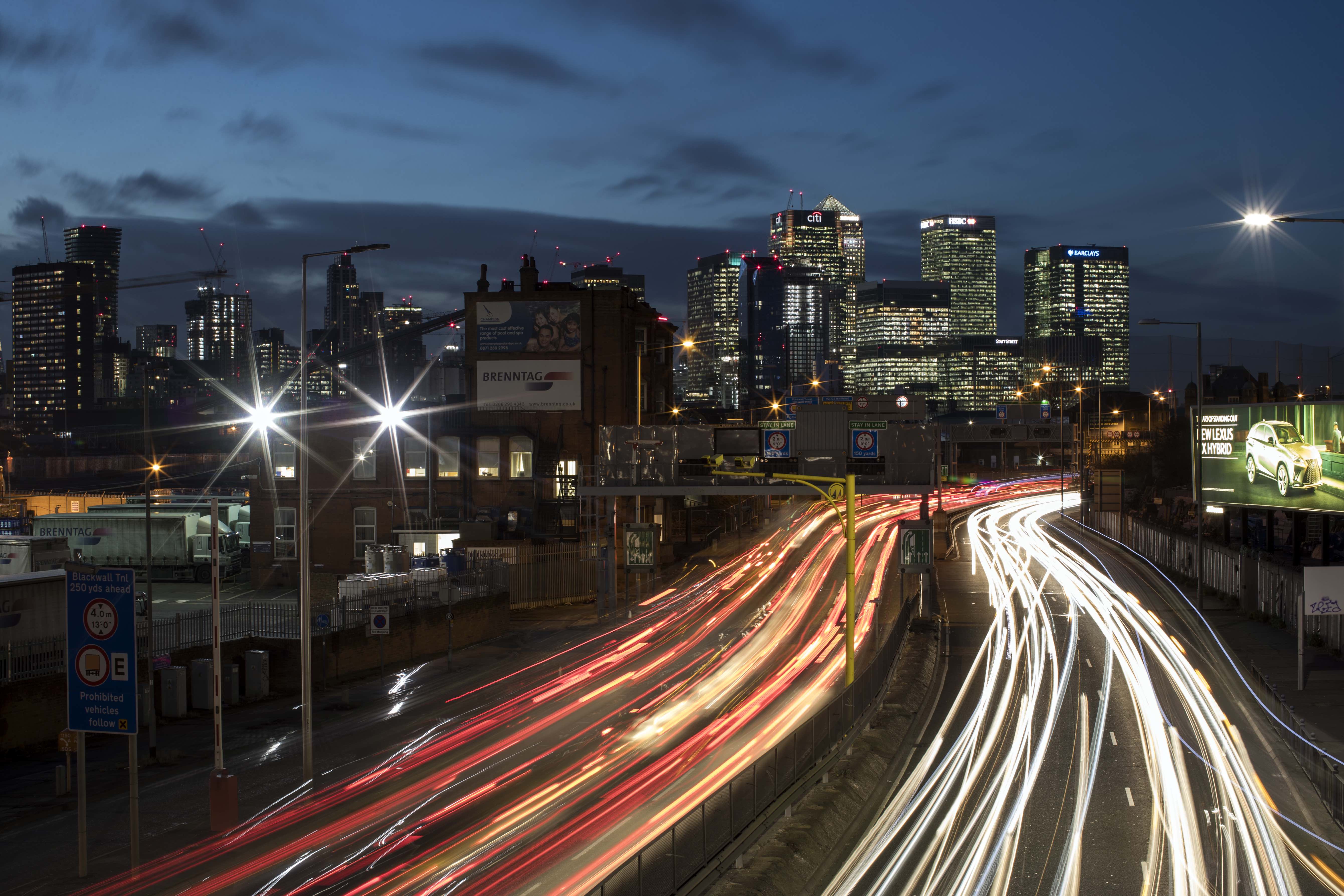Can AI really solve Britain’s traffic problems?
New Government scheme will allow tech companies to access live congestion data

A free daily email with the biggest news stories of the day – and the best features from TheWeek.com
You are now subscribed
Your newsletter sign-up was successful
The Government has announced plans to open roadwork information to tech companies in a bid to alleviate congestion.
The Department for Transport (DfT) claims that making data available to tech firms could spawn the “next generation of navigational apps” that use artificial intelligence (AI) to inform motorists about disruption “months in advance”.
Not only does the DfT hope that the technology will help alleviate congestion, but it also predicts that the scheme will “improve air pollution by reducing the number of vehicles in traffic hotspots”, Motor1 reports.
The Week
Escape your echo chamber. Get the facts behind the news, plus analysis from multiple perspectives.

Sign up for The Week's Free Newsletters
From our morning news briefing to a weekly Good News Newsletter, get the best of The Week delivered directly to your inbox.
From our morning news briefing to a weekly Good News Newsletter, get the best of The Week delivered directly to your inbox.
“As a road user, there is nothing more frustrating than discovering roadworks and getting stuck in traffic jams”, said George Freeman, minister of future transport.
He added that the move will “help open up data, reducing congestion, pollution and frustration for road users.”
How would “next-gen navigation apps” work?
According to The Daily Telegraph, app makers will be given access a host of information ranging from “changes to signs and speed limits to road closures from roadworks or street parties”.
A free daily email with the biggest news stories of the day – and the best features from TheWeek.com
With that information, navigation apps and devices can provide users with a more accurate plan of their journey, the newspaper says.
While some navigation maps, such as Waze, often alert drivers to police sightings and temporary average speed check zones, they require users to actively inform others of notable changes. This means that a driver could be warned about roadworks that are not present on their journey.
The DfT’s scheme, meanwhile, suggests that navigation app and device makers would be fed traffic information in real-time.
But before the technology makes its way into the public domain, the department will undertake a review of Traffic Regulation Orders - a “legal tool” that lets the authorities shut roads to carry out temporary roadworks and make “permanent changes” to the network, explains Auto Express.
So will it solve Britain’s traffic problems?
That remains to be seen, but the ever-growing reliance on sat-nav systems means the scheme could be a hit with drivers.
The Telegraph notes that drivers in the UK last year lost an average of 178 hours as a result of traffic. This cost drivers a total of £7.9bn in 2018, which breaks down as an average of £1,317 per driver.
London is currently ranked the sixth most congested city in the world, where drivers lose an average of 227 hours per year as a result of traffic, the newspaper says.
There are already a number of “smart motorways” scattered across the UK, which are equipped with traffic-monitoring sensors to detect congestion and road accidents. If the stretch of motorway is prone to congestion, a variable speed limit may be introduced to prevent drives from entering a traffic hotspot at high speed.
But the new scheme will provide apps with information to offer motorists alternative routes, Auto Express reports. This could prove to be a more effective way of alleviating traffic, as drivers will be given more accurate information to plan their journey.
-
 The ‘ravenous’ demand for Cornish minerals
The ‘ravenous’ demand for Cornish mineralsUnder the Radar Growing need for critical minerals to power tech has intensified ‘appetite’ for lithium, which could be a ‘huge boon’ for local economy
-
 Why are election experts taking Trump’s midterm threats seriously?
Why are election experts taking Trump’s midterm threats seriously?IN THE SPOTLIGHT As the president muses about polling place deployments and a centralized electoral system aimed at one-party control, lawmakers are taking this administration at its word
-
 ‘Restaurateurs have become millionaires’
‘Restaurateurs have become millionaires’Instant Opinion Opinion, comment and editorials of the day
-
 How AI chatbots are ending marriages
How AI chatbots are ending marriagesUnder The Radar When one partner forms an intimate bond with AI it can all end in tears
-
 The most downloaded country song in the US is AI-generated
The most downloaded country song in the US is AI-generatedUnder the radar Both the song and artist appear to be entirely the creation of artificial intelligence
-
 Disney bets big on AI, but not everyone sees a winner
Disney bets big on AI, but not everyone sees a winnerTalking Points The company will allow users to create their own AI content on Disney+
-
 Smart glasses and unlocking ‘superintelligence’
Smart glasses and unlocking ‘superintelligence’The Explainer Meta unveiled a new model of AI smart glasses this week, with some features appearing ‘unfinished’ at a less-than-perfect launch
-
 Oz at the Sphere: AI's latest conquest
Oz at the Sphere: AI's latest conquestFeature The Las Vegas Sphere is reimagining The Wizard of Oz with the help of AI
-
 The Velvet Sundown: viral band that doesn't actually exist
The Velvet Sundown: viral band that doesn't actually existIn the Spotlight These AI-generated rock hits are brought to listeners by… no one
-
 How generative AI is changing the way we write and speak
How generative AI is changing the way we write and speakIn The Spotlight ChatGPT and other large language model tools are quietly influencing which words we use
-
 Jony Ive's iPhone design changed the world. Can he do it again with OpenAI?
Jony Ive's iPhone design changed the world. Can he do it again with OpenAI?Talking Points Ive is joining OpenAI, hoping to create another transformative piece of personal technology. Can lightning strike twice?